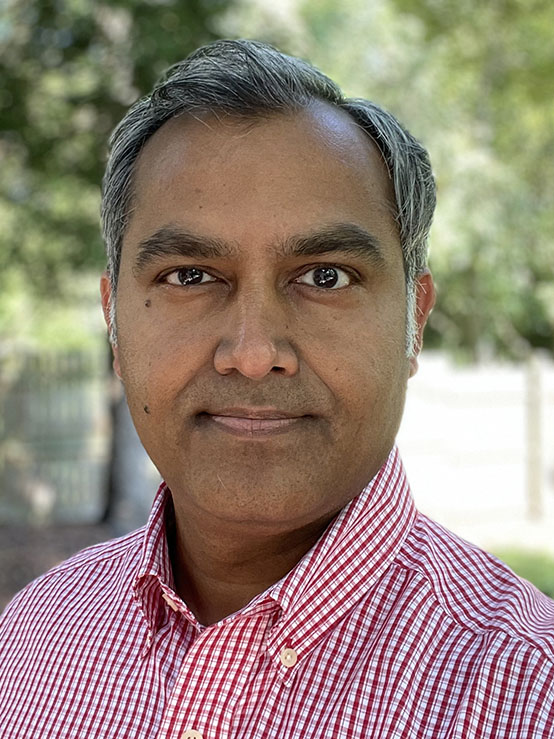Faculty News
College Welcomes Heart and Skeletal Muscle Researcher Ravi Singh to Pharmacological and Pharmaceutical Sciences Department
Oct. 19 — The University of Houston College of Pharmacy recently welcomed Ravi K. Singh, Ph.D., as an assistant professor of pharmacology in the Department of Pharmacological and Pharmaceutical Sciences.

Singh earned his Ph.D. degree in molecular, cellular, and developmental biology from The Ohio State University in Columbus, Ohio. His postdoctoral training was at Baylor College of Medicine, where he was awarded a two-year fellowship and a four-year Scientist Development Grant from the American Heart Association. Before joining UHCOP, Singh was an assistant professor at the Medical College of Wisconsin (MCW).
Singh’s research focuses on alternative splicing, a process in which a single gene can encode two or more protein isoforms. Over 90% of protein-coding genes are alternatively spliced, much of which occurs during the postnatal period. Singh’s research seeks to identify mechanisms that regulate alternative splicing in heart and skeletal muscle and determine the role of protein isoforms produced by alternative splicing in the context of development, disease and aging. Understanding these fundamental processes will provide new insights to develop ideas to treat diseases affected by splicing and to preserve cardiac and muscle function during natural aging, where cardiac and muscle function often decline.
His current research investigation, "Identify a new non-canonical role of MEF2D⍺2 protein isoform in skeletal muscle metabolism," is supported by a two-year R21 grant from the National Institute of Arthritis and Musculoskeletal and Skin Diseases.
Singh’s research has been published in high-impact peer-reviewed journals, including Molecular Cell, Cell Reports, Cell, Leukemia, Haematologica, Cancer Research, and Molecular Cancer Research.
Singh was awarded the Teaching pin for facilitating the Molecular and Cellular Research (MCR) Pathway discussions for medical students at the Medical College of Wisconsin. He was invited to participate in the first AHA Research Leaders Academy meeting and to present his work at the National Institute of Health’s Stadtman Investigator Program.